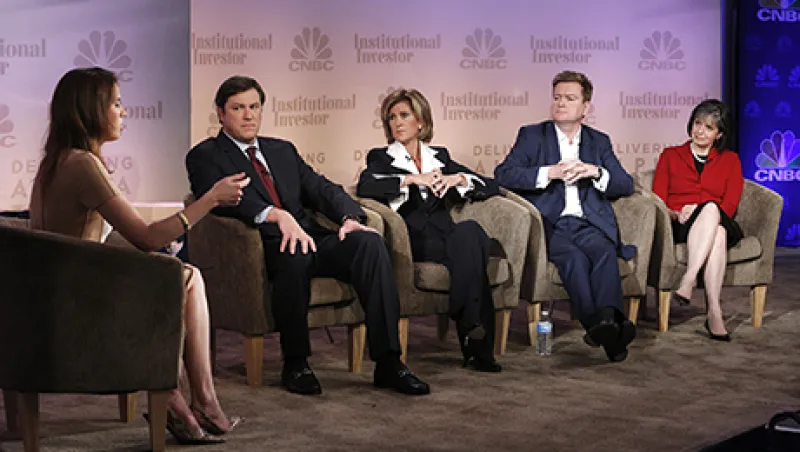
CNBC EVENTS -- Delivering Alpha 2014 -- Pictured: CNBC's Kelly Evans moderates the Global Stage panel with Lee Aisnlie, Chief Executive Officer, Maverick Capital, Mary Callahan Erdoes, Chief Executive Officer, J.P. Morgan Asset Management, Paul Marshall, Chief Investment Officer and Chairman, Marshall Wace LLP, and Jane Mendillo, President and Chief Executive Officer, Harvard Management Company at the CNBC Institutional Investor Delivering Alpha Conference in New York -- (Photo by: Heidi Gutman/CNBC)
CNBC/Heidi Gutman/CNBC

